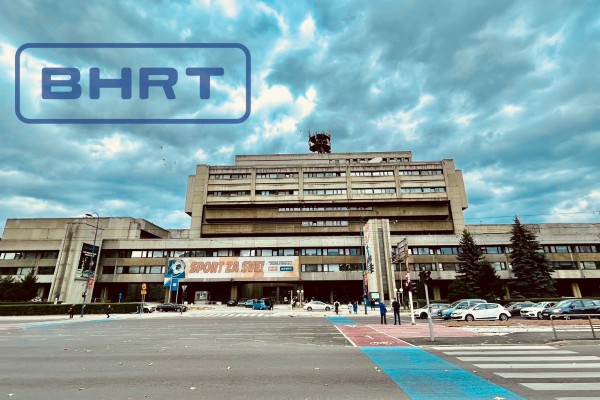Turkish free expression groups, gathering in Istanbul Wednesday on the 105th anniversary of the country’s official abolition of censorship, took the Justice and Development Party (AKP)-led government to task for a continuing decline in press freedom.
The second Congress of the Freedom for Journalists Platform (GOP) – an umbrella group representing local and national free expression groups in Turkey – heard from journalists, their families and international supporters during a day-long event that concluded with the handover of the GOP’s rotating chairmanship to the International Press Institute (IPI)’s Turkish National Committee.
In a declaration read at the close of the meeting, the GOP called for the abolition of all legal barriers to journalists carrying out their work, specifically urging Parliament to revise Turkish anti-terrorism, criminal and press laws. It also called for the protection of journalists’ right to unionise and demanded the release of any journalist who has received a prison sentence that violates case law of the European Court of Human Rights, as well as journalists accused of terrorism-related offences the group considers politically-motivated.
Noting multiple reports that police prevented journalists from working during recent protests that erupted across the country after authorities used force to evict demonstrators protesting a plan to demolish Gezi Park in central Istanbul, the declaration called on the government to uphold its obligation to protect journalists.
The document further decried ties between media barons and government that it said had led to self-censorship by what some dubbed the “supporter media” under the control of owners allegedly more concerned with keeping Ankara pleased than engaging in critical journalism, and it called for freedom for users of social media and for the judiciary to administrate justice independent of political pressure.
Wednesday’s meeting at the Marmara Hotel, which overlooks Gezi Park, brought participants together to hear from representatives of local groups and international organisations – including IPI and its affiliate, the South East Europe Media Organisation (SEEMO) – as well as formerly-imprisoned journalists and family members of the 64 journalists currently behind bars.
JOURNALISTS INJURED, FIRED
To one side of the room, a series of photographs depicted bloodied journalists injured while covering the Gezi Park-related protests in late May and June. Speakers cited a report released yesterday by news website Bianet counting 105 alleged assaults on journalists by uniformed or suspected police and security officers during the protests, as well as a report released earlier this week by the Journalists’ Union of Turkey (TGS) saying that at least 22 media staff were laid off during the protests and 37 forced to quit their jobs.
The most prominent firing was that of Yavuz Baydar from his post as ombudsman at the Sabah newspaper after two columns he submitted were rejected.
On June 24, Baydar, who is also a columnist for Today’s Zaman, submitted a piece that criticised the links between media owners and government. Four days earlier, he told participants at a European Commission event in Brussels focusing on media freedom in the Western Balkans and Turkey that his country’s media owners had become an extension of the government, allowing major media outlets to be taken “hostage” to economic interests and their newsrooms to become “open-air prisons”.
When the June 24 column was rejected, Baydar instead published readers’ letters that criticised the government’s reaction to the Gezi Park protests. Sabah Editor-in-Chief Erdal Safak penned a column criticising Baydar, who was reportedly forced to take a leave of absence. During that time, the New York Times published a column titled “In Turkey, Media Bosses Are Undermining Democracy” in which Baydar expounded on his earlier arguments.
Upon his return to Sabah, Today’s Zaman reported, Baydar submitted a column “about the appropriate organizational structure and relationship between an editor-in-chief and the ombudsman and on the significance of editorial freedom from possible external interference”. The column was similarly rejected and Baydar was fired.
IMPRISONED JOURNALISTS
Wednesday’s meeting also followed the release Tuesday of a damning report by three deputies of the opposition Republican People’s Party (CHP) titled “World’s Biggest Prison for Journalists: Turkey”. The report documents the individual circumstances of many of the journalists currently imprisoned for alleged crimes against the state, as well as the severe health problems many of them face behind bars.
IPI Turkish National Committee Chair Kadri Gursel, a columnist with Milliyet, promised to work hard in remarks he gave upon accepting leadership of the GOP. He said that the upcoming month would be a busy time for the group, noting that a potentially-decisive court date in the case of the alleged Ergenekon plot is scheduled to take place Aug. 5 at the Silivri Prison and that a number of hearings in other cases involving journalists are set for September.
“Turkey is now a country in which the future is not foreseeable,” Gursel, also a contributor to news website al-Monitor, told the Congress. “We have to be ready for anything.”
The GOP was founded in 2010 and held its first Congress in connection with World Press Freedom Day on May 3, 2011.
Following the close of Wednesday’s Congress, the Turkish Journalists’ Association (TGC) bestowed its annual Press Freedom Awards on Gursel and others in a ceremony at the Marmara Hotel.
The group honoured Gursel individually for his work for press freedom in the last year and the Dogan News Agency as an institution for its coverage of the Gezi Park protests. Many Turkish media outlets have been criticised for failing to cover the protests, with CNN Turk’s broadcast of a wildlife documentary on penguins – rather than coverage of the initial police action against demonstrators – leading protestors and others critical of the media’s coverage of the demonstrations to adopt the bird as a symbol of their frustration.
The TGC honoured Gokhan Bicici, an editor and moderator with IMC TV, for his work in connection with the protests. Radio journalist Fusun Erdogan – who is currently on trial for alleged membership in an illegal organisation and who in September will have spent seven years in prison on the as-yet unproven accusation – was honoured on behalf of imprisoned journalists.


